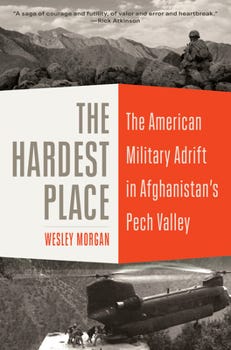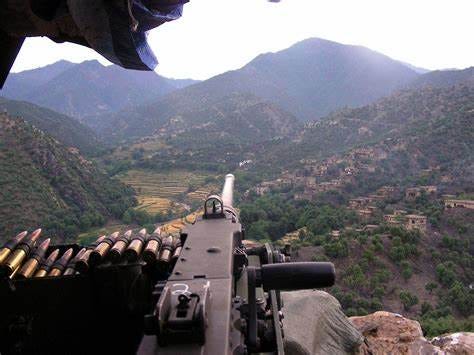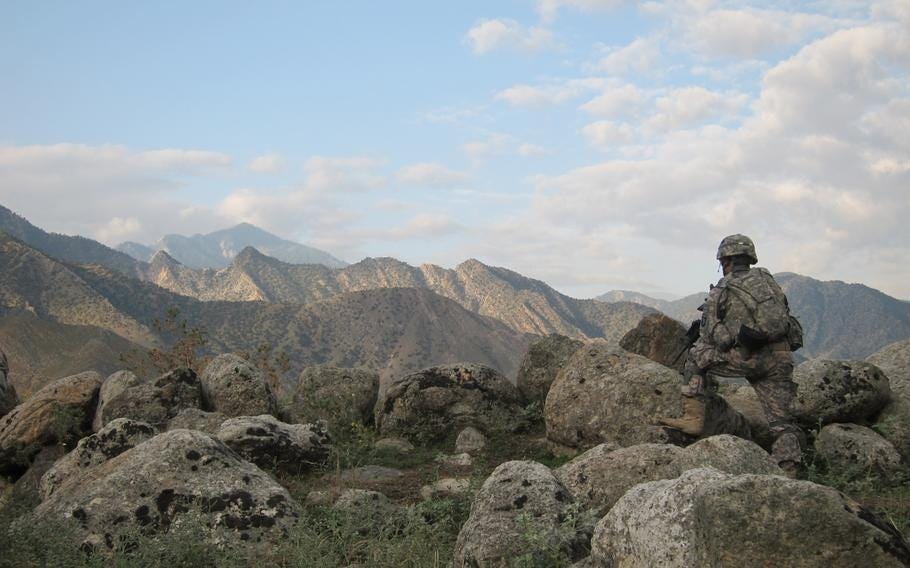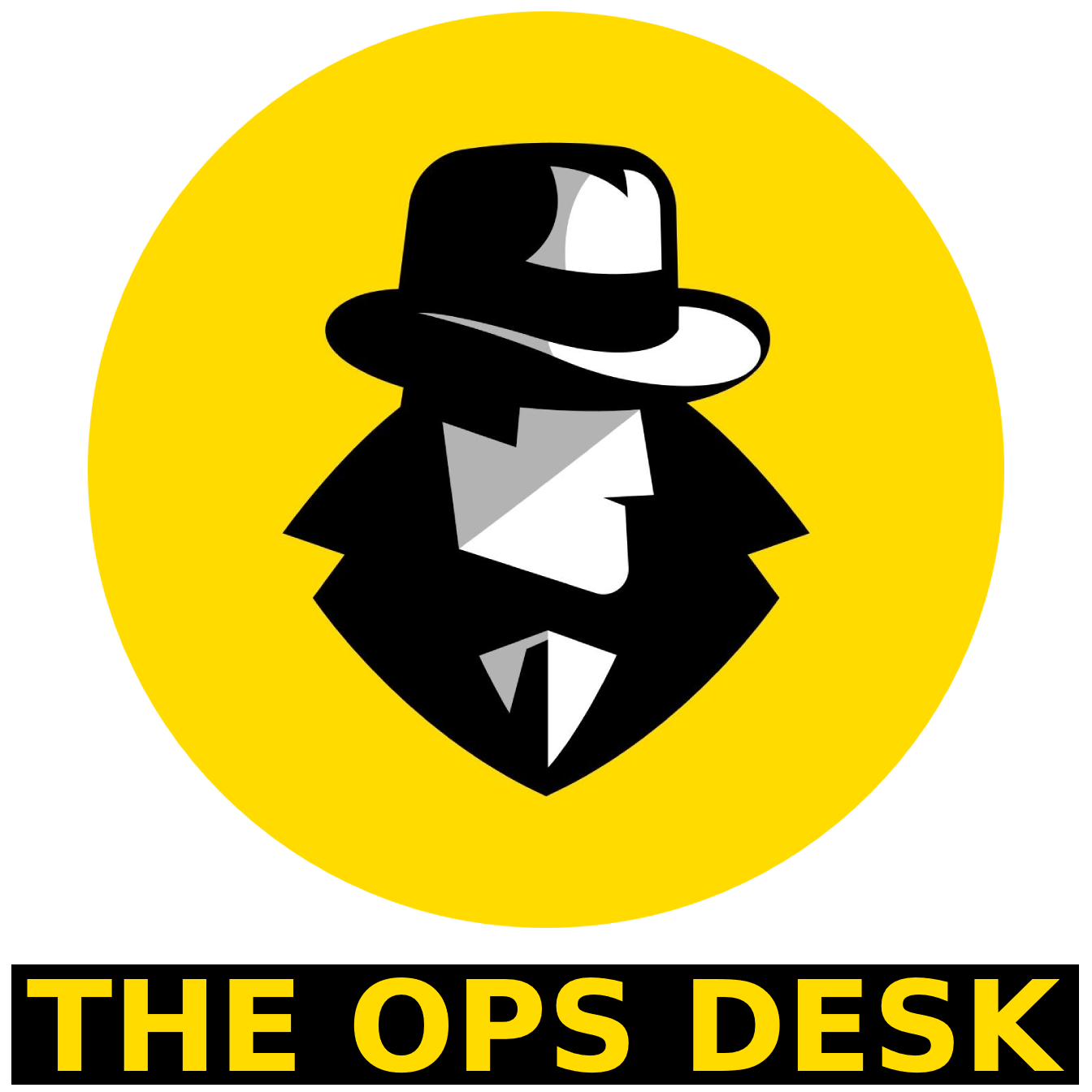Our Weekly Entertainment Dispatch
America’s Travails in Afghanistan
The Hardest Place: The American Military Adrift in Afghanistan’s Pech Valley by Wesley Morgan (2021)
This installation of Weekend Buff is a bit outside of our purview, but we felt that it was an important book for people to read. Wesley Morgan was a freelance reporter who spent several years going back and forth to Afghanistan. He used his experiences to pen The Hardest Place.
Quite frankly, when we think of a journalist these days we assumed we would get an unbearably biased and one-sided account of whatever agenda they wanted pushed (a sad commentary on the state of journalism as a whole). Perhaps a few anecdotes from the field to prove their points. This book was a surprise. Well researched, well written, and multi-faceted.

Morgan takes us to the recesses of the Pech Valley region in northeastern Afghanistan. He covers over a decade of US efforts to control and pacify the place, starting in early 2002 with a small group of Special Forces operators, to a gradual buildup of large forces, to the eventual retreat of the Americans from the region in 2015.
The story of US efforts is told from a micro and macro point of view, with individual soldiers and unit commanders trying their best to succeed at a vague and always-shifting mission. Trying different tactics to gain a better grasp of the situation. Making heroic efforts with varying degrees of success and failure. Handling firefights, community meetings, building projects, secret missions, intelligence gathering, and ambushes. With the generals and commanders constantly initiating new policies, strategies, and orders. Always trying to do more. The mission moved from capturing terrorists to Americanizing the countryside with roads, schools, and other modern amenities.

The soldier’s experiences reminded me of supervising in a busy police precinct. Obviously not the same level of threat or danger, but the same vibe. Combat this robbery pattern, talk to the community about quality-of-life issues, organize a basketball tournament, respond to this gun-run. Handle new directives from headquarters – assign an officer to subway entrances, record all bike summonses issued, ensure that you attend this community event, liaise with neighborhood watch, ask the Department of Transportation to improve this accident-prone intersection. Everyone has another bright idea, and each one of them takes resources and time. Going in a hundred different directions trying to keep things together.
Morgan uses his own experiences and hundreds of interviews to weave his tale. It is remarkably detailed, and shockingly bleak. One comes away with the sense that Morgan truly lived the story and is passionate about his narrative.
The biggest takeaway from this book (and war in general) is the waste of it all. The book was written before the end of American involvement in Afghanistan and the complete pullout. Meaning: before the disastrous final evacuation and sudden collapse of the American-backed government. But Morgan senses it coming in the way the war was run.
Mission creep beyond all logic. New programs that had no chance of working. Contractors making a fortune off the backs of the American taxpayer. Poor leadership and worse judgement. One could sense the American presence moving from a well-intentioned fight against terrorism to a bureaucratic waste of money and lives with no real definition or hope of success. At the end, it seemed like staying alive and spending money became the mission.

As an American, you will be proud of our troops and disgusted with our government. The sheer waste of blood and treasure is astounding and it is remarkable that we went along with it for so long. When one hears conspiracy theories of the military industrial complex, this well-documented book does much to validate them.
The Hardest Place is not a short read. It runs over 500 pages and has copious notes, so brace for a big, immersive experience. You can find it on Amazon for about $15.
The book will open your eyes to the experience of our military over the past decades of post-9/11 wars. It is often a disturbing sight.

Thanks for reading The Ops Desk. Stay Safe!









